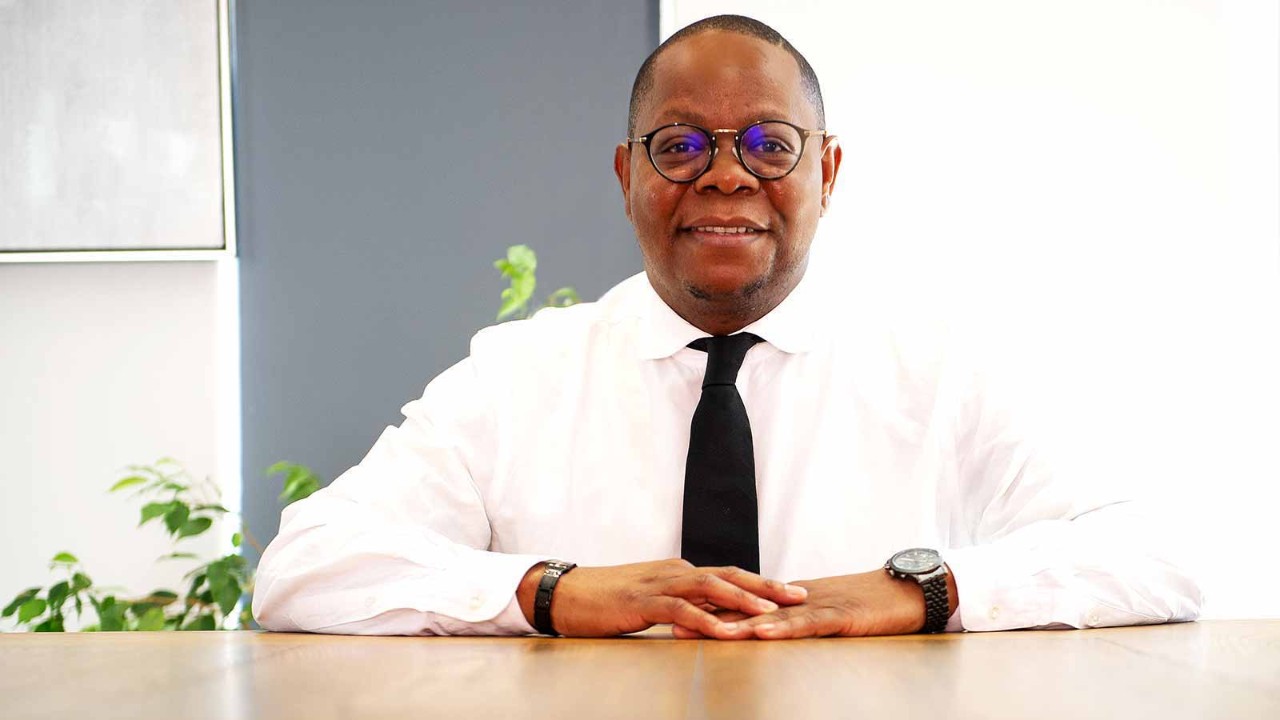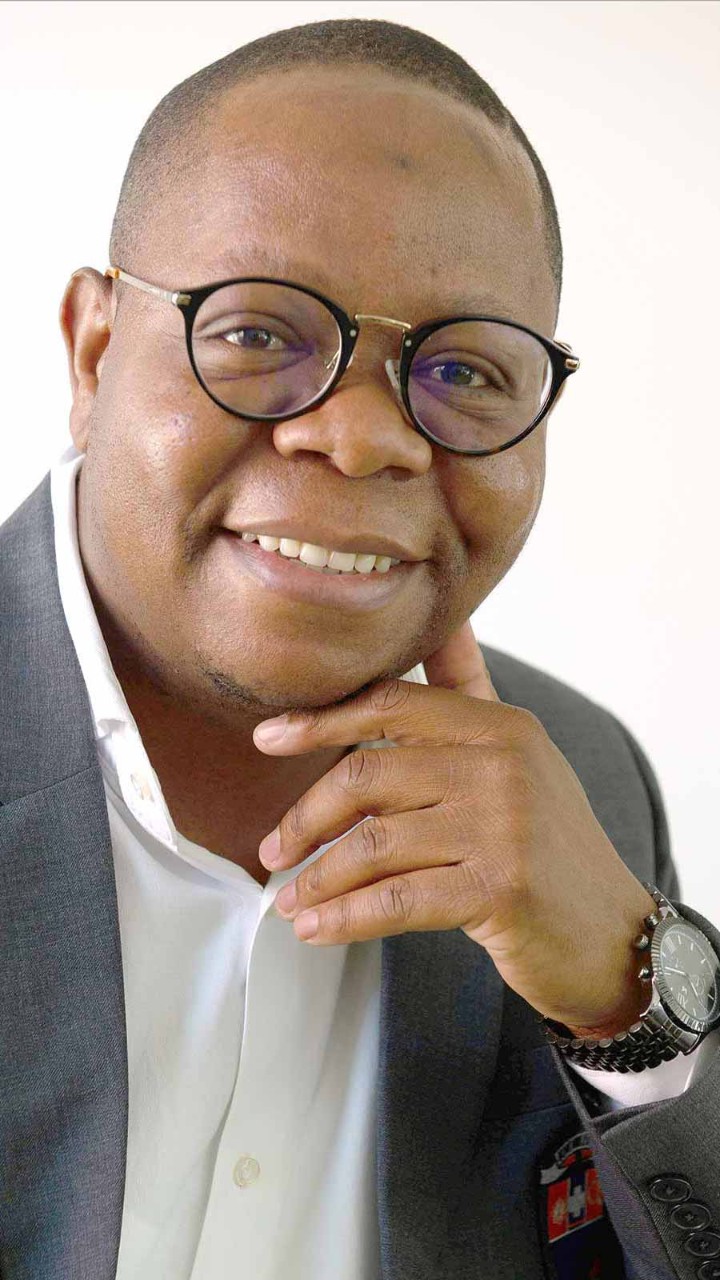
In rating education as the greatest game-changer of all, Zimbabwe-born Eminos Manyawi FCCA pays tribute to his roots as a headmaster’s son.
‘I was raised in a rural area,’ says the CFO of South Africa’s Sefako Magkatho Health Sciences University. ‘As much as my father was a school principal and an entrepreneur, I had no other privileges. There was no electricity at home. The only route out of that environment was to be educated.’
‘You can do anything you want to in life as long as you focus on it’
CV
2017
CFO and executive director, Sefako Makgatho Health Sciences University, Pretoria
2012
Senior finance manager, later CFO, Cross-Border Road Transport Agency
2011
Deputy and acting CFO, Metrobus (City of Johannesburg)
2009
Acting director, Gauteng Department of Economic Development
2007
FD, Nisida Technologies, Johannesburg, South Africa
2002
Finance manager, Innscor Africa, and general manager, Nando’s, Zimbabwe
And educated he certainly became. He is currently writing a thesis on mergers and acquisitions for his PhD. It is the latest in a long string of qualifications that includes an MBA in accounting, an advanced diploma in management accounting, management and leadership diplomas from the University of Pretoria’s Gordon Institute of Business Science and Stellenbosch University, an MSc in financial management from Edinburgh Business School and, of course, his ACCA Qualification.
That education has brought him success – and looks like taking him further. ‘I am very ambitious,’ he says. ‘I have learnt that you can do anything you want to in life as long as you focus on it.’ His goal is to become a university CEO, president or vice chancellor in the next 10 years.
Qualification juggling
His ACCA training was a key part of that non-stop focus on self-improvement. He credits it with ‘making me the real accountant that I am – no question.’
He adds: ‘ACCA is all-encompassing in that it moulds you around advanced financial reporting and audit and assurance services, and you become very practical about issues relating to strategy. ACCA was the launchpad for my career.’
It all began back in 2005, when Manyawi gave up his nightclub and bottle store businesses in Harare to pursue the ACCA qualification and an MBA at the University of Zimbabwe. At the same time he was working as general manager of fast-food chain Nando’s, where he looked after finance, HR and operations.
Understandably, it was a challenging time for him. When the ACCA and MBA exams collided one year, he had to finish his morning exam papers 30 minutes early and then dash across town so he could arrive no later than half an hour after the next set had begun. He still passed all those exams, he says.
Corporate beginnings
His early collection of qualifications helped him land his first job in South Africa, as finance director at electrical contractor Nisida Technologies. ‘I was a frontrunner because they wanted someone with an MBA, and I was doing ACCA and the MBA at the same time,’ he says.
‘The knowledge I gained from my studies helped me get the job and my permanent residency’
Two years later, his training paid off again when he landed a role at the department of economic development in Gauteng: ‘They were looking for somebody with an ACCA qualification. During the rigorous recruitment process I was able to show the knowledge I had gained from my studies, and that helped me get the job and my permanent residency.’
After a successful three years in Gauteng, which saw him turn around the reporting function, he was headhunted to municipal-owned Metrobus in Johannesburg, as CFO.
The following year, he joined the Cross-Border Road Transport Agency, a state-owned entity focused on improving the flow of commuters and freight operators on the roads between South Africa and its neighbours, as senior finance manager. He had been brought in to bring an end to a string of qualified audit opinions – and did so. He says: ‘I turned that around. The company received its first unqualified opinion in the first year I joined.’
He was subsequently promoted to CFO.
Into academia
After six years, he left for his current role in the education sector because working for a university would let him once again pursue his studies.
‘A university will pay for your tuition if you study further and if your course is relevant to your career. They are also understanding and give you enough time to study,’ he says.
‘There were no systems. I established the entire finance department’

His role at Sefako Makgatho has not been without its challenges. He explains: ‘The university was established in 2015. There were no finance systems in place, no reporting function, not even a management accounting function. I established the entire finance department and brought in new people.’
He also heads the transport department and runs the grants office, a workload that has seen him promoted to a position equivalent to a deputy vice chancellor.
Among the projects he is focusing on at the university is expanding the programme mix and offering cheaper-to-deliver courses – degree courses for doctors and pharmacists are very expensive. ‘We want to be like a business school in health sciences, with a wider offering, and I may want to become the head of that school at some point,’ he says.
Flexing funding
Manyawi expects the future to remain challenging for South African universities, given the highly competitive funding space. Rather than relying on government, he believes universities need to collaborate with business and NGOs and also create their own funding enterprises.
‘The issue of fees will remain contentious,’ he adds. ‘To cut costs, you need to go for blended learning, but you also need cheap data for both academics and students to improve intake without expensive physical infrastructure, thus enhancing productivity.’
At SMU, Manyawi is championing a new business model that aims to diversify revenue streams while at the same time ensuring students from disadvantaged backgrounds are not excluded.
‘The profession should take issues relating to environmental reporting and sustainability more seriously’
Looking ahead at his own profession, he believes there’s a need to adapt to remain relevant. ‘We have to look at how to address the challenges and opportunities of the future, such as cryptocurrencies and reporting on them. We need to be ahead of the cycle in terms of our standards. I also think the profession should take more seriously issues relating to environmental reporting and sustainability.’
On the training of accountants, he believes there should be a fundamental shift, with a greater focus on application, so that the professionals of the future are fully equipped to succeed in the changing business environment.


